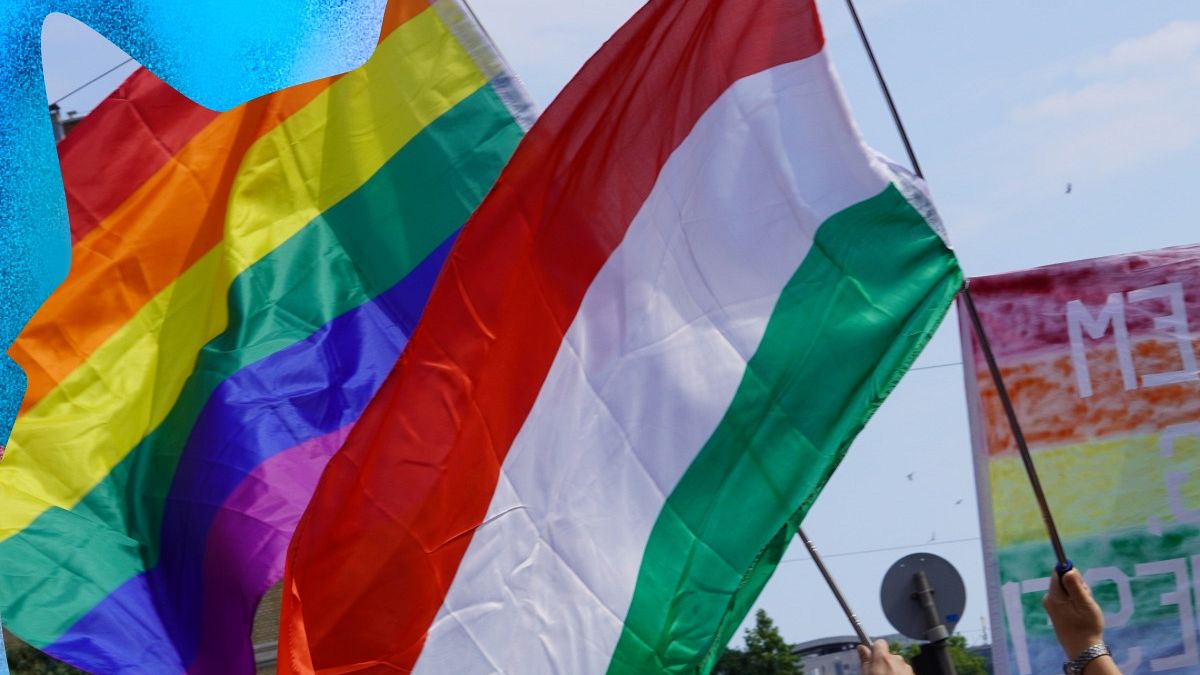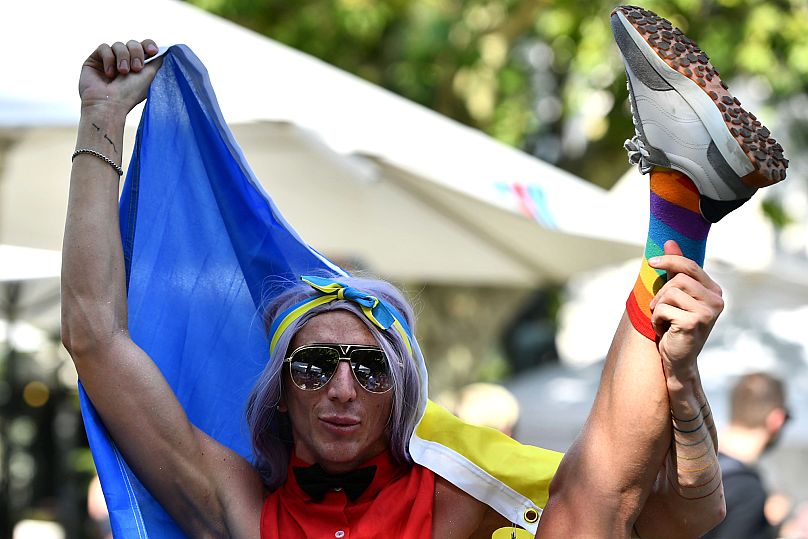LGBTQ RIGHTS ARE HUMAN RIGHTS
Hungary moves to ban Pride March with constitutional amendment

Hungary's government is seeking to ban the annual Budapest Pride March by amending the country’s Fundamental Law (Constitution), a move that legal experts describe as an "unconstitutional absurdity." The government argues that the ban is necessary to protect children, but critics warn that it lacks legal justification and risks violating fundamental rights.
Prime Minister Viktor Orban in his annual state of the nation speech on February 22 said that organisers should not bother with this year’s march, which marks its 30th anniversary. Cabinet member Janos Lazar on social media called for banning the event as soon as possible, to which the prime minister replied: "Indeed, clearly spoken."
Further details were left to the prime minister's chief of staff. In a regular weekly press briefing, Gergely Gulyas justified the decision by citing "common sense."
He said the government would introduce its 15th amendment to the Fundamental Law. The proposed changes would enshrine the principle that a child’s right to physical and mental development supersedes all other legal considerations.
He was asked if the government would use police force if participants still chose to take to the streets, Gulyas replied: "The government is not working under the assumption that people won't abide by the regulations."
Hungary’s government has linked its renewed push against LGBTQ+ rights to shifting global politics. Gulyas suggested that the victory of Donald Trump in the upcoming US presidential election would give Hungary more leeway to enforce such measures.
"Until now, we had two boots on our chest – one from the United States, led by an ambassador who personally marched in the front row of Pride. That boot has now been lifted, and we can breathe more freely," Gulyas said, referring to outgoing US Ambassador David Pressman.
Scholars argue that under Hungary's laws, public gatherings can only be banned in advance if they pose an obvious and direct danger, which is yet to be demonstrated in the case of Pride. For the government's proposed ban to be legally enforceable, it would need to provide concrete evidence that the Pride march presents a direct threat to children’s physical or mental well-being, but so far, no such evidence has been made public.
Since sweeping to power in 2010, Hungary's nationalist conservative leader has systematically curtailed LGBTQ+ rights through legal and policy measures. The constitution explicitly defines marriage as between a man and a woman, limiting legal recognition of same-sex relationships and making adoption of children by gay couples impossible.
Parliament approved the "child protection law" in 2021, which bans content on homosexuality and transgender issues in schools and media accessible to minors. The law has been widely criticised as discriminatory and compared to Russia’s "gay propaganda" law.
In 2022, authorities fined bookstores and publishers for selling books featuring LGBTQ+ characters without warning labels or separating them from children’s literature.
Reviving this issue serves no purpose other than to shape public discourse ahead of the 2026 election and a gesture to appease voters from the radical right.
Shortly after the announcement, an MP of Our Homeland submitted a bill explicitly prohibiting "gatherings promoting homosexuality."
Earlier this week, pride organisers said they are making preparations to hold the rally despite the government’s legal manoeuvres. In a statement last week, they condemned the politicization of LGBTQ+ rights at a time when many Hungarians were struggling with economic issues. "The government’s task should not be to further restrict the basic freedoms of the Hungarian people, but to find real solutions," it added.
With EU institutions closely monitoring democratic backsliding in Hungary, any attempt to restrict fundamental rights could further strain relations with Brussels. If the government proceeds with its plans, international backlash is likely, potentially triggering further diplomatic and financial consequences for Budapest,
hvg.hu write
Hungary's clampdown on Pride march sparks backlash

Copyright Facebook/Budapest Pride
By Rita Konya
Published on 28/02/2025 -
This article was originally published in Hungarian
The Orbán administration has said that the country 'should not tolerate' the public event this year.
NGOs and human rights activists in Hungary have condemned the government's proposed clampdown on this year's Pride march in Budapest.
In a speech last week, Hungarian Prime Minister Viktor Orbán hinted that his administration would crack down on the event, saying it would be "a waste of time and money" for its organisers to make their usual preparations.
Then on Thursday, Gergely Gullyás, the Hungarian minister who runs Orbán's office, spoke more explicitly.
“There will be no Pride in the public form in which we have known it in recent decades," he said at a press conference. "We believe that the country should not tolerate Pride marching through the city centre."
Gullyás claimed the move was being made to "protect children".

Critics hit out at the government, saying the proposal was a clear breach of citizens' rights.
Viktor Szalóki, the political director of the Hungarian NGO aHang, said banning the public event would violate people's rights to free assembly and expression.
Meanwhile, the organisers of Budapest Pride, now in its 30th years, have vowed defiance.
"There was Pride, there is Pride, and there will be Pride," they said.
"Basically, we think that if the law on assembly is tampered with in any way, it would be an admission that Hungary is no longer a democracy," Zita Hrubi, the spokesperson for Budapest Pride, added.
Sexual minorities have long been targeted by the Orbán government. Critics of the so-called "Child Protection Act", introduced in 2021, said it equated homosexuality with paedophilia.
Since 2019, the Hungarian constitution has prohibited same-sex couples from adopting children and defines marriage as only between a man and a woman.




No comments:
Post a Comment